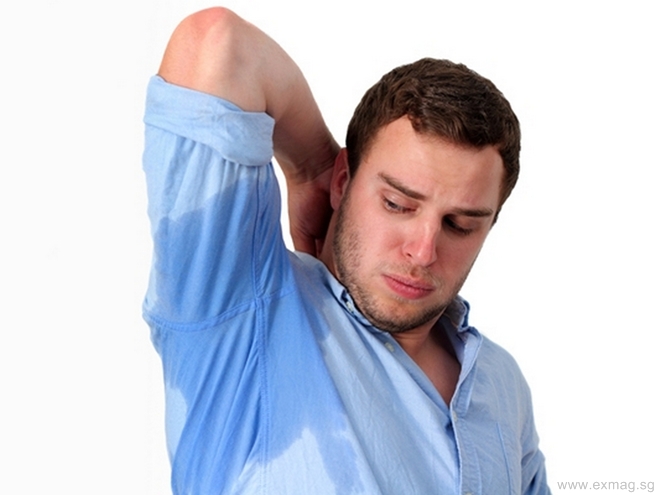Sweat is one of those body fluids that is quite often blamed for something that it is popularly believed to be the causative ingredient of – the much dreaded body odour! But the truth is, it isn’t the sweat which is the culprit here. It is the bacteria that is to be blamed as they break down the chemicals in the sweat, thereby releasing gases which aren’t quite appealing; much to the frustration of many!
Why sweat?
The primary function, as well known to many, is to cool the body. As the sweat evaporates off the body, it absorbs heat from the body thereby cooling the body in return. The average person is assumed to have about 2.6 million sweat glands and women have more sweat glands than men. Besides the primary function of cooling the body, sweat is also a means of excretion – gets rid of toxins and salts from the body. Sweat could also reflect one’s state of emotion. In humans, there are two types of sweat glands that are found – eccrine and apocrine glands.
The control centre
Sweating is controlled by the preoptic and anterior regions of the brain’s hypothalamus. The hypothalamus is fed by information from temperature sensors in the skin. Sweating is also affected by the genes of a person, environmental conditions and age. When a person moves from a cold location to a warmer location, a change in the sweating mechanism called ‘acclimatisation’ happens. The amount of solute in one’s sweat reduces during such a change.
How much sweat?
It is quite possible for a human to sweat anything between 100 ml to 8 whole litres in one day! During intense physical activity, the body can lose as much as 2 litres in an hour. The pH level of human sweat could between 4.5 and 7 (moderately acidic to neutral). Hypohydrosis is a condition where one isn’t able to sweat enough and could be so because of many underlying causes. It is observed that a well fit person begins to sweat sooner and more – a manifestation of the body’s efficiency at managing body temperature quicker.
Some fabrics like nylon, polyester etc conserve body heat and cause the body to sweat much more than the required amount, in comparison with breathable fabrics like cotton. Also, certain foods like onions, garlic etc act as sweat triggers. Sweating is the sign of a healthy body and this innocent body coolant must never be blamed for one’s body odour.
Read about some frequently asked questions on sweat here – http://www.dermatologistinbangalore.com/underarm-sweating-treatment/
Didn't find what you were looking for? Ask Dr Dixit your question and get answers within a day.
The information provided in Dr. Dixit's answer is for educational purposes only and is not intended to constitute medical advice. The information provided should not be relied upon as a substitute for consultations with a qualified health professional who may be familiar with your individual medical needs.

 09901890588
09901890588





